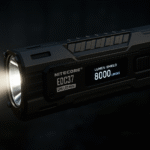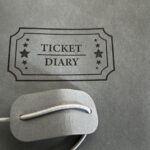How to Choose the Right Telescope (Without Getting Overwhelmed)
Shopping for a telescope can feel like trying to navigate the night sky without a star map. With so many models, mounts, and features, it’s easy to get lost. Whether you’re buying for yourself or gifting one to a budding astronomer, this guide will help you pick the perfect scope without wasting money on the wrong one.
1. Know Who It’s For
Choosing the right telescope starts with the user’s experience level.
- Beginner – Needs something easy to set up and use right away.
- Intermediate – Ready for better optics and more control.
- Advanced – Wants precision tracking and astrophotography options.
2. Pick the Right Type of Telescope
There are three main types of telescopes. Each has strengths and trade-offs.
- Refractor – Great for beginners; crisp views of planets and the moon. Low maintenance.
- Reflector – Ideal for deep-sky objects; better value for larger apertures. Needs occasional alignment.
- Compound (Catadioptric) – Versatile, compact, and good for both planets and deep space.
3. Consider Portability
If it’s too heavy or complicated, it will collect dust.
- Tabletop scopes are perfect for quick backyard sessions.
- Full-size scopes are better for dedicated observation spots.
4. Aperture Matters Most
A telescope’s aperture — the diameter of its main lens or mirror — determines how much light it gathers.
- Beginner: 70–100mm
- Intermediate: 130–200mm
- Advanced: 200mm+
The bigger the aperture, the more detail you’ll see in faint objects.
5. Don’t Forget the Mount
A stable mount makes all the difference.
- Altazimuth – Simple up/down, left/right movement. Best for beginners.
- Equatorial – Tracks the sky’s rotation for smoother viewing. Best for long sessions or astrophotography.
6. Budget for Accessories
A few extras can make stargazing much more enjoyable:
- Barlow lens (doubles magnification)
- Red flashlight (preserves night vision)
- Star maps or astronomy apps (to find your targets)
7. Buy From Trusted Sources
Avoid bargain-bin scopes that promise big magnification but fail under the stars. Stick to well-reviewed brands like Celestron, Orion, Sky-Watcher, and Meade.
Your Shortcut to the Best Picks
Still not sure which telescope to choose? I’ve put together a handpicked list of Best Gifts for Amateur Astronomers that includes:
- Beginner-friendly telescopes
- High-quality binoculars for stargazing
- Must-have accessories
- Books and learning tools
- Decorative astronomy-inspired items
- Advanced gear for experienced observers
Whether you’re buying for yourself or surprising an astronomy fan, this list makes the decision easy, and every item has been carefully chosen for quality and value.






